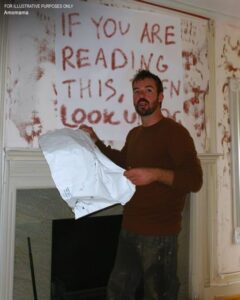
When our parents passed away, they left behind a significant inheritance for us: two houses. The first was a modern home where they lived during their final years, and the second was the old, dilapidated house of our childhood. My brother, Aaron, was eager to sell the old house and split the proceeds. He saw it as a burden, a relic of the past that should be discarded in favor of something more practical and profitable.
Aaron’s approach was practical, even ruthless, and he couldn’t understand why I wanted to keep the old house. To him, it was just a rundown property. But to me, it was a symbol of our family’s history and my father’s dreams. Dad had always hoped that one day we would renovate the old house and make it a home for our families, just as he had done. His wish was clear, and despite Aaron’s insistence to sell, I couldn’t bear to part with it. I took on the responsibility of the old house, while Aaron, thinking I was overly sentimental, took the modern home.
The renovation of the old house was nothing short of daunting. My wife, Laura, and I faced a seemingly endless list of repairs and updates. Despite our enthusiasm, there were moments when I questioned if I had made a mistake. One day, as I was peeling off some old wallpaper, I stumbled upon a hidden message from my father. The note, written in Dad’s unmistakable handwriting, instructed whoever restored the house to dig beneath the old oak tree in the garden.

Laura and I, filled with a mix of excitement and curiosity, rushed to the garden. The old oak tree, a silent witness to our childhood, stood as majestic as ever. We dug at its base, our hearts pounding with anticipation, until we unearthed a small, weathered box. Inside, we discovered papers detailing a savings account Dad had set aside specifically for the restoration of the house, as well as the deed to a seaside property.
The discovery was emotional and validating. It was clear that Dad had planned this carefully, ensuring that the house would be restored and preserved. Laura and I were astounded by the extent of Dad’s foresight and generosity.
We knew we had to share this with Aaron, though we anticipated his reaction would be volatile. A few days later, we were invited to dinner at Aaron’s home. As we sat around the table, I decided it was time to reveal our father’s plans. The moment I disclosed the contents of the box, Aaron’s reaction was explosive. He felt betrayed and outraged, believing that I was getting more than my fair share simply because I had chosen to keep the old house.
“It’s not about fairness,” I explained. “It’s about honoring Dad’s wishes and the legacy he wanted us to preserve.” Aaron struggled with the idea, feeling excluded and resentful. He stormed out of the room, leaving a tense silence behind.
Weeks passed with minimal communication between us. I focused on the renovation, each repair and update bringing the house back to life and reconnecting me with our family’s past. Eventually, Aaron came around. He admitted that he had overreacted and that he felt left out. I assured him that it wasn’t about exclusion but about honoring our father’s vision.
Laura and I decided to sell the seaside property, using the proceeds to invest in our children’s education. We wanted to ensure that Dad’s legacy would continue to benefit the family, even in a different form.
In the end, the renovation of the old house became a symbol of family unity and resilience. The process not only restored a piece of our family history but also strengthened the bond between Aaron and me. Through the ups and downs, we learned the value of honoring our past while building a future for the next generation. The journey, though fraught with challenges, ultimately reinforced the importance of family, memory, and legacy.





